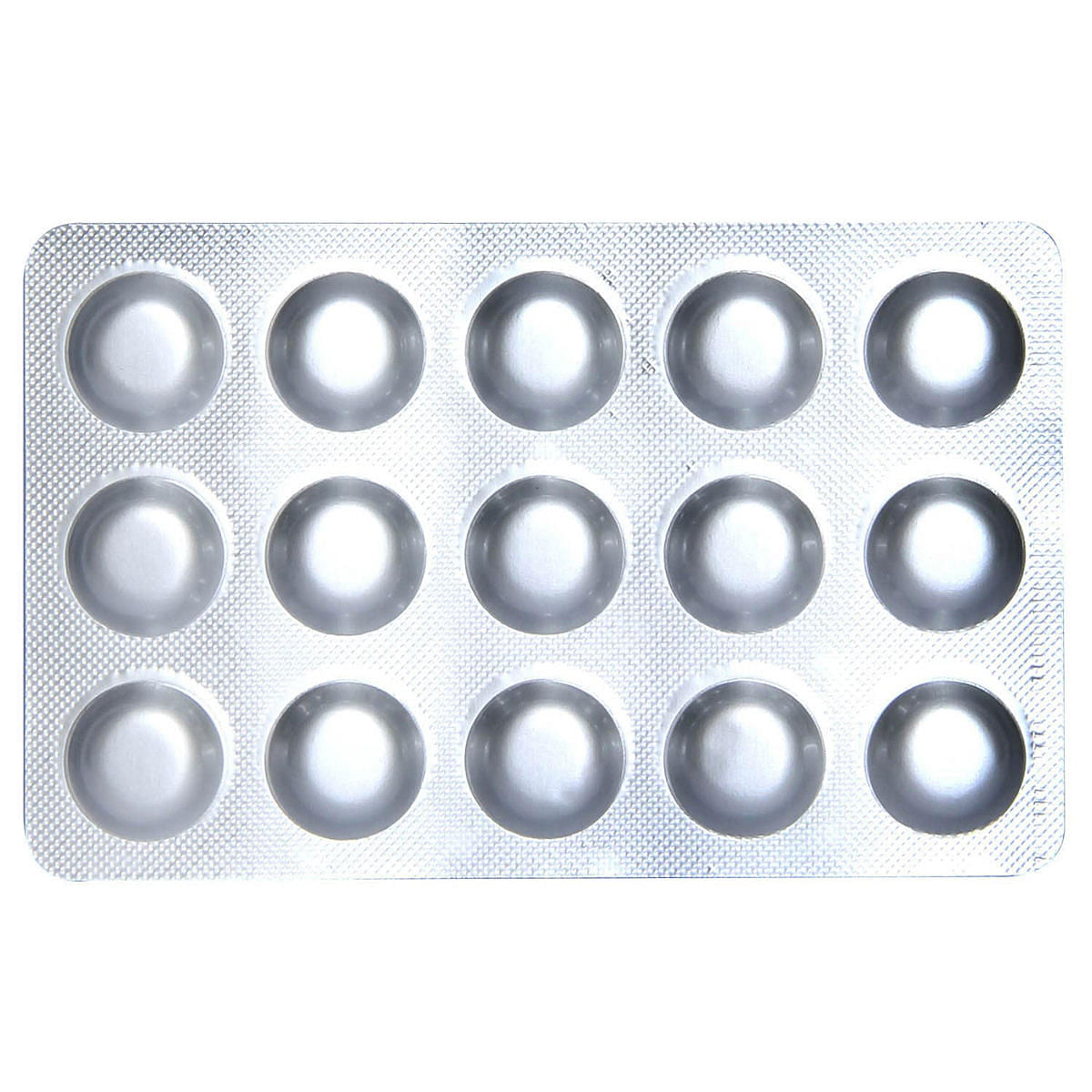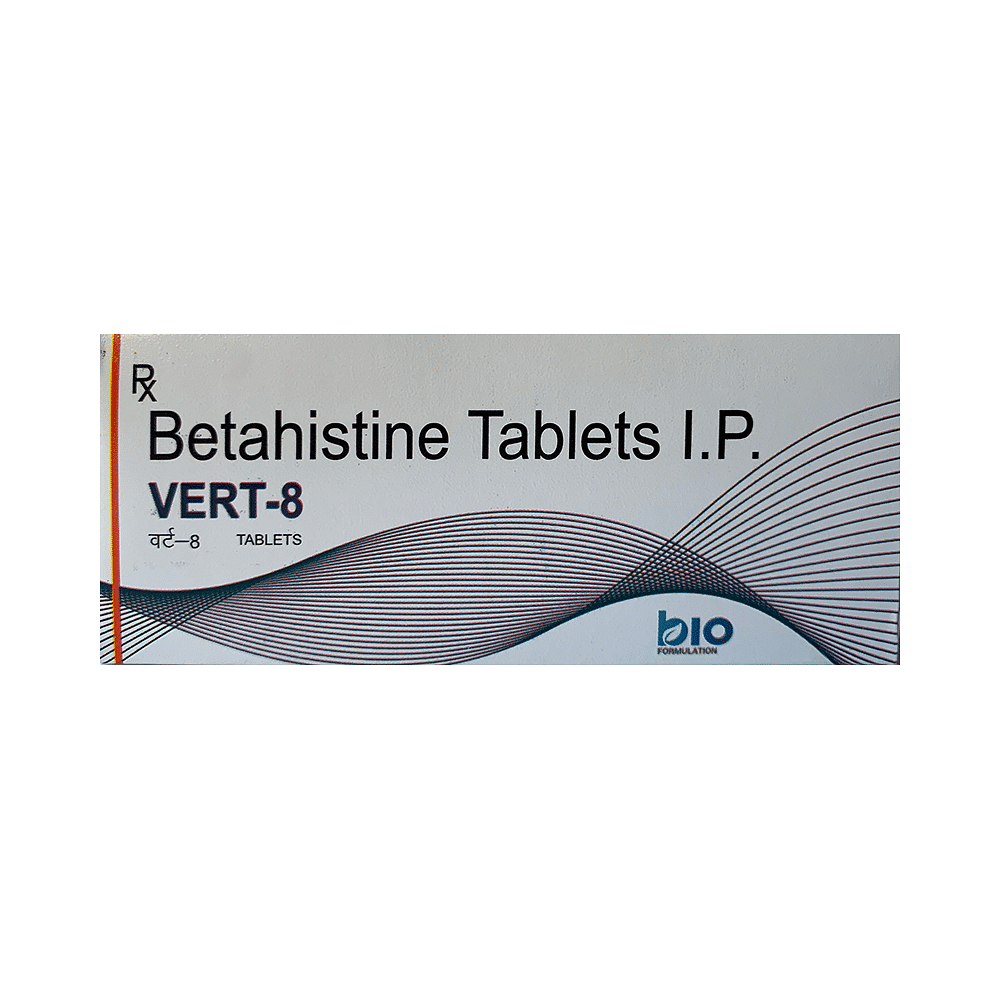
Betaript 8mg Tablet
Manufacturer
Kript Pharmaceuticals Private Limited
Salt Composition
Betahistine (8mg)
Key Information
Short Description
Betaript 8mg Tablet is used to prevent and treat Ménière’s disease, which includes symptoms like dizziness, tinnitus, and hearing loss.
Dosage Form
Tablet
Introduction
Betaript 8mg Tablet is used to manage and treat Ménière’s disease, a disorder of the inner ear characterized by symptoms such as vertigo, tinnitus, and hearing loss. This medication works by reducing the amount of fluid in the inner ear, thereby alleviating these symptoms. Common side effects include headache, nausea, and indigestion. It is important to take this medication as prescribed by your doctor, and to inform them of any other medications you are taking, as well as any pre-existing conditions such as stomach ulcers, asthma, or blood pressure issues. Pregnant or breastfeeding women should consult their doctor before using this medication.
Directions for Use
Take this medicine in the dose and duration as advised by your doctor. Swallow it whole without chewing, crushing, or breaking it. Betaript 8mg Tablet may be taken with or without food, but it is better to take it at a fixed time.
How it works
Betaript 8mg Tablet is a histamine analog that improves blood flow in the inner ear, reducing the pressure of excess fluid. This helps alleviate symptoms such as nausea, dizziness, and spinning sensations associated with Ménière's disease. It also dampens the nerve signals sent from the inner ear to the brain, providing relief from these symptoms.
Quick Tips
You have been prescribed Betaript 8mg Tablet to relieve vertigo (dizziness), hearing problems, and tinnitus associated with Ménière's disease. It can only decrease the number and severity of attacks but may not completely stop them. Taking it with food can help reduce stomach problems. Take it at the same time each day to maintain a steady amount of the medicine in your body. Inform your doctor if you have a history of stomach ulcer, asthma, or low blood pressure. Inform your doctor if you are pregnant, planning pregnancy, or breastfeeding. Do not stop taking the medicine suddenly without talking to your doctor first.
Related Medicines

Vertin 8 Tablet

Betavert Tablet

Alnahist 8mg Tablet

Vert 8 Tablet

Beta Good 8mg Tablet

Aver 8mg Tablet

Veltec 8mg Tablet

Avert 8mg Tablet

Cantover 8mg Tablet

Neuvert 8mg Tablet
Frequently asked questions
What is Meniere's disease, and can it go away?
Meniere's disease is a disorder affecting the balance and hearing organs in the inner ear, characterized by symptoms such as vertigo, fluctuations in hearing, tinnitus, and pressure in the ears. The treatment approach depends on individual factors, and consulting a doctor can help determine the most suitable strategy for your case.
Is Betaript 8mg Tablet effective?
Betaript 8mg Tablet is effective when used as directed by your doctor. It is essential to continue taking the medication as prescribed, even if you experience improvement in your condition, to avoid the symptoms from returning or worsening.
What triggers Meniere's disease?
Meniere's disease can be triggered by various factors, including stress, overwork, fatigue, emotional distress, underlying illnesses, and pressure changes. Certain foods, such as dairy products, caffeine, alcohol, and those with high sodium content, may also trigger the condition. A low-sodium diet (2 grams/day) can help manage vertigo in Meniere's disease.
What if I forget to take a dose of Betaript 8mg Tablet?
If you forget to take a dose of Betaript 8mg Tablet, take it as soon as you remember. However, if it is almost time for your next dose, skip the missed dose and take the next dose at the scheduled time. Avoid doubling the dose to make up for the missed one, as this may increase the risk of side effects.
Is stress a reason for vertigo?
Mental stress can exacerbate vertigo, but it is not a direct cause of the condition.
What are the causes of vertigo?
Vertigo can be caused by a sudden drop in blood pressure, dehydration, or rapid changes in posture. It may also be triggered by motion sickness, certain medications, or inner ear problems (Meniere's disease, acoustic neuroma). In some cases, vertigo can be a symptom of other underlying disorders (multiple sclerosis, head trauma).
How long should Betaript 8mg Tablet be taken?
The duration of treatment with Betaript 8mg Tablet may vary depending on individual responses. Some people may experience rapid improvement, while others may require more time. It is essential to take the medication as prescribed and wait patiently for the results. Consult your doctor if you have any concerns.
What are the common side effects of Betaript 8mg Tablet?
Betaript 8mg Tablet may cause mild stomach issues, such as vomiting, stomach pain, abdominal distension, and bloating. Taking the medication with food can help reduce the risk of these side effects. However, the absorption of the medication may be reduced when taken with food.


